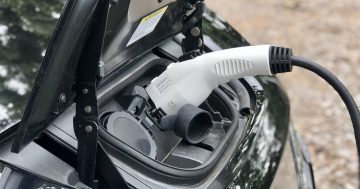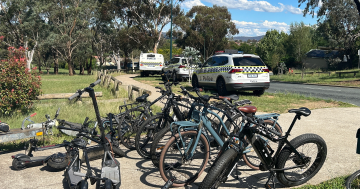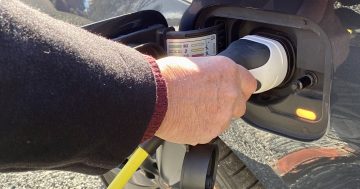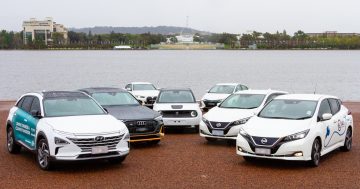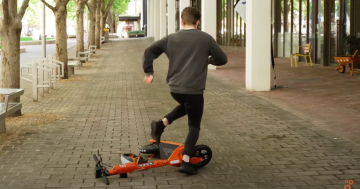
E-bikes are becoming a popular form of transport, but fears persist about their batteries. Photo: Switched On Cycles.
A NSW proposal to ban owners of electric bikes or scooters from charging their batteries inside their apartments because of the fears they are a fire risk would be hard to enforce, according to an ACT strata manager.
But a Canberra e-bike business said using quality products properly was the best way to minimise any risk of fire.
The Owners Corporation Network (OCN), which represents apartment owners, has drafted a model by-law to manage e-bikes and e-scooters in response to a number of fires sparked by lithium-ion batteries.
The by-law would also ban residents from storing cheaper imported models or modified or damaged e-bikes on the property.
Vantage Strata’s Chris Miller said any reasonable suggestion from an owners corporation to mitigate the risk of fire should be considered, but the challenge would be in administration.
“It’s going to be very difficult to police if it becomes prohibited,” he said
Any rule to modify behaviour must be accompanied by education so that people understand why it was introduced.
“When coupled with really good education, and when driven by a committee that places a great deal of importance on community activation and engagement, then they can be successful,” Mr Miller said.
“This is fairly new territory. The information and advice are changing at a rapid pace and there is a lot of misinformation. And it’s a little bit scary.”
Mr Miller said fire safety in general needed to be given more attention and better education, not just regarding lithium-ion batteries.
Owner of Switched On Cycles in O’Connor Simone Annis said the proposed ban was not the best way to reduce the risks of battery fires in apartments, given that most fires result from cheap, low-quality products and user error.

Vantage Strata’s Chris Miller: education is the key. Photo: Liv Cameron.
Ms Annis said her home business stored 90 lithium batteries at any one time, charging them during the day.
“I’ve been doing that for 16 years without any risk of fire,” she said.
“Admittedly, we don’t charge overnight and we’re always around when they’re charging.
“From our experience, if you’re using good quality cells from a reputable dealer, they’re well looked after, charged with the correct charger in a well-ventilated area and not left on charge for weeks, all the kinds of things you do to mitigate risk, there’s no issue.”
Ms Annis said the problem of cheap, low-quality, or even illegal products, often bought online, was an ongoing problem.
Switched On Cycles had to prove to the regulating authority that the bikes they sold were safe and met a certain standard, including the battery and the charger.
“If it’s too cheap, bad quality battery cells is one way manufacturers can save money,” she said.
Buying a replacement battery or charger that was not compatible with the original set-up was also a problem.
Ms Annis said that rather than banning indoor charging, it would be better to clean up the market and educate people to use and maintain the products correctly.
She said e-bike batteries weren’t the only ones used in households, saying every second person had a power tool.
Proposals such as this could deter people from taking up an e-bike, which was a concern.
“An e-bike is a good alternative to driving in a lot of situations and a good alternative for people who can’t ride a normal bike,” Ms Annis said.
“However, I think there’s probably more danger falling off a bike than there is of your battery exploding or causing fires, but like any kind of electrical product, we need to manage it well.”
There have been battery fires in Canberra, but these have been related to e-scooters, including two storage centre blazes in 2021 and one at a food delivery service just before Christmas.
Last year, ACT Fire and Rescue attended more than 20 incidents involving lithium-ion batteries, including from power tools.
Lithium-ion batteries were implicated in the Boxing Day blaze at the Hume recycling centre in 2022.












